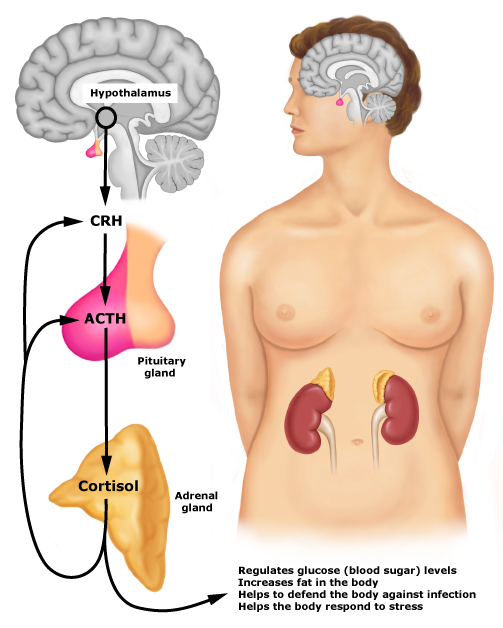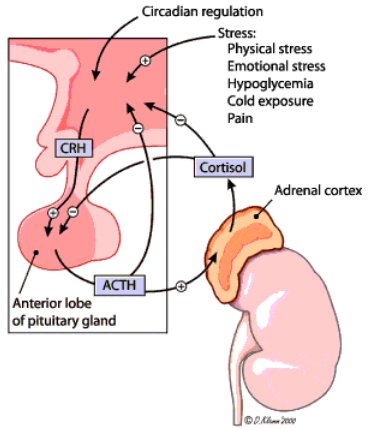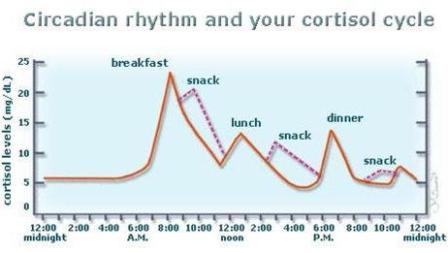
High and Low Cortisol Levels, and how to balance them.
 To get scientific, when a person is very stressed, the hippocampus (is a recipient of danger) gives the order to the hypothalamus to release a hormone related to stress (corticotropin) to work together with the pituitary gland to release (corticotropin), which in turn, secretes cortisol.
To get scientific, when a person is very stressed, the hippocampus (is a recipient of danger) gives the order to the hypothalamus to release a hormone related to stress (corticotropin) to work together with the pituitary gland to release (corticotropin), which in turn, secretes cortisol.
Cortisol in itself is not a bad hormone. It provides necessary functions. It controls the metabolism, affect the sensitivity to insulin, regulates your immune system and blood flow. It is very effective for survival when combined with other stress hormones (catecholamines): Improving your perception, cognitive function, energizes the muscles and assists in healing wounds.
How does the excess of cortisol affects the body?
However, because it also inhibits bodily functions which are not  oriented for survival (such as skin, kidney, reproductive organs, digestion, bone growth, muscle uptake of amino acids, protein synthesis and collagen formation ), when your body supports an excess of cortisol for too long it begins to decompose, physiologically speaking.
oriented for survival (such as skin, kidney, reproductive organs, digestion, bone growth, muscle uptake of amino acids, protein synthesis and collagen formation ), when your body supports an excess of cortisol for too long it begins to decompose, physiologically speaking.
As an anti-diuretic hormone, its excess leads to significant water retention and on the other hand promotes catabolism (muscle destruction). As a side effect, your metabolic rate will be reduced by the loss of muscle mass.
So, if you’re dealing with the “normal” stress of everyday life – job responsibilities, project deadlines, financial urgencies, sleep deprivation, dehydration, illnesses, alarms (artificial sleep cycles), even seemingly innocuous as traffic jams and tantrums – most likely you’re flooded with cortisol. Now, imagine the body’s stress if you deliberately or “accidentally” skip a meal – or worse, you resort to binge eating of simple carbohydrates and sugars, because “you can’t control yourself” so you skipped a meal … more cortisol.

What can we do to optimize our hormonal balance?
The most important advice to balacing your hormones is simply avoiding excess or prolongued stress. But there is also more you can do to optimize your body, here are some additional tips:
- Add positive stress to your life by exercising every week.
- Get 7-8 hours of sleep and but if that is not possible, take naps whenever you can.
- Spend 15-20 minutes outside every day, get exposure to the outdoors (water, earth, wind, sun).
- Spend time in cultivating close friendships; and if you are in an intimate relationship, sharing physical contact, and participate in healthy sex with a loving partner at least once a week will help you reduce stress levels.
- Keep meals properly separated (3-5 hours apart), drink water whenever you have a chance.
- Maintain a regular bowel movement (hydration and fibers help here) because you are what you eat, and what you don’t “eliminate” from your body.
- Temporarily eliminate caffeine, alcohol, sugar and wheat (about 2 years).
- Make time to meditate, perform low-intensity joint mobility and / or yoga at least once a week.
